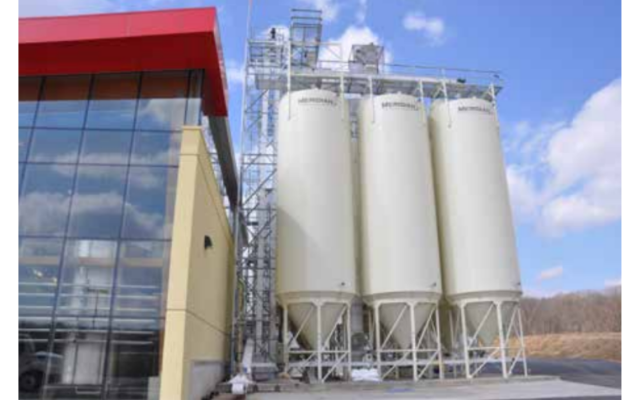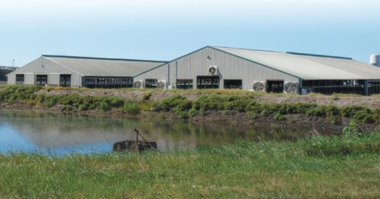At the Victory Brewing Company, the brewmasters turned to reliable NETZSCH NEMO® progressing cavity pumps for the difficult jobs of moving spent grain and yeast through the brewing process.
The Victory Brewing Company story starts in 1973 when fifth-graders Ron Barchet and Bill Covaleski stepped aboard a school bus and became instant friends. Fast-forward to 1996 when the two friends with a passion for brewing quality beer opened the doors to the Victory Brewing Company, a bar, restaurant and brewery in Downingtown, Pennsylvania. From a converted factory building where they brewed 1,725 barrels of beer in their first year, Victory has seen fast growth and has been a leader in the craft beer movement in the United States. The brewery in Downingtown now produces over 93,000 barrels of quality craft brews, with names like HopDevil, Golden Monkey, Old Horizontal and Summer Love Ale.
More recently Victory has opened a second, state-of-the-art brewery in Parkesburg, Pennsylvania. The 212,000 square foot building features a German-built Rolec brewhouse with a production of about 10 brews a day for an annual output of approximately 225,000 barrels.
A Progressing Cavity Pump Solution for Spent Grain
Transfer For a brewery with such high demand for its premium beers, Victory needs pumping equipment of the highest reliability, maintainability and service life.
NETZSCH is no stranger to the beer making industry, with brewers of all sizes relying on NETZSCH NEMO® progressing cavity pumps to keep production moving.
NETZSCH progressing cavity pumps can be used in many stages in the beer brewing process. However, due to the pumps’ facility in conveying non-flowing, viscous, and abrasive media, the most popular application for the progressing cavity pumps is for spent grain removal.
Spent grain in the beer brewing process can vary in character, but it is typically hot (approximately 150° F / 65° C) and can vary widely in moisture levels. It is always abrasive, and significant pressure may need to be generated if the spent grain is to be pumped long distances and to an elevated vessel such as a storage silo.
In the new Parkesburg brewhouse, one application for a NETZSCH progressing cavity pump is to move the spent grain created during a brew cycle. When the spent grain bin becomes approximately 50% full during a brew cycle, a sensor kicks the pump on. The spent grain is pumped approximately 250 feet to the spent grain silos outside the brewery.
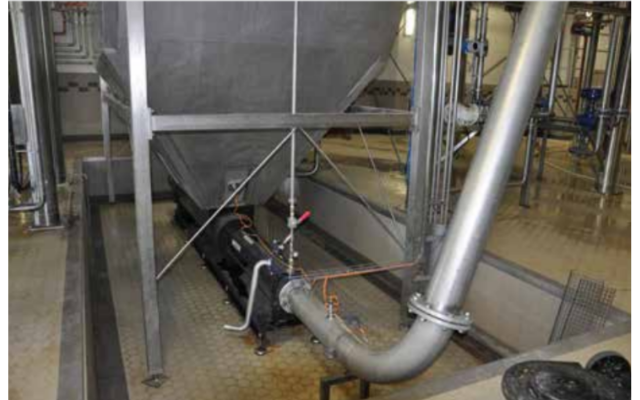
Seen here in the Victory Brewing Company Parkesburg facility, a patented auger feed at the base of the inlet hopper overfeeds the wet but nonflowing spent grain into the NETZSCH NEMO® progressing cavity pump (pump 1) to assure conveyance.
The material is pumped the entire length of a gradient, and when it arrives at the silo, it must make a 90-degree turn to be pushed straight up to the top of the silo. Pumping the spent grain material this length and elevation puts a great deal of back-pressure on the pump. A natural airline is run into the conveying line after the pump to create air gaps. To facilitate in the reduction of the discharge head, air is introduced into the conveying line after the pump to create air gaps which eliminate the phenomenon known as a plugged flow.
Scott Dietrich, Vice President of Brewery Operations at Victory Brewing noted, “After all of the extract has been taken out for brewing beer, the remaining material – the spent grain, including spent hops – is a very high-moisture product. We used this type of NETZSCH pump for the same application in our Downingtown facility. We have experience with these pumps – they just run– so it made sense to install the same pump technology in our new Parkesburg brewhouse. We used a different PC Pump before, I don’t remember the name, just the color – it was blue – and it didn’t work as well as the NETZSCH Pump does.”
NETZSCH NEMO® progressing cavity pumps are designed with elastomer stators which can expand with the heat from the spent grain. To counteract this expansion, the rotor is engineered with a reduced diameter to maximize performance and minimize the torque as it rotates within the stator. Dry run protection was provided with this pump, which is a common and useful option on the progressing cavity pumps.
According to Dietrich, “To this point, we have done no maintenance on the NETZSCH pump in the Parkesburg brewhouse. We just let it run. The same NETZSCH pump that conveys spent grain in our Downingtown facility ran for four or five years before the stator needed replacing.”
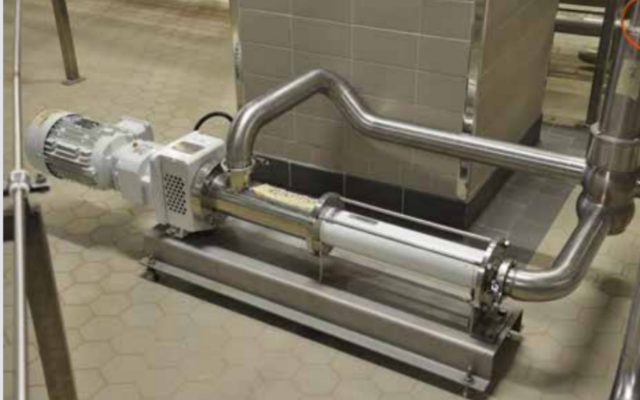
Liquid yeast dosing in the beer brewing process benefits from the precise metering capabilities of NETZSCH progressing cavity pumps (pumps 2 & 3).
NETZSCH progressing cavity pumps are also used to convey media including yeast and spent yeast in the two Victory Beer brewing facilities.
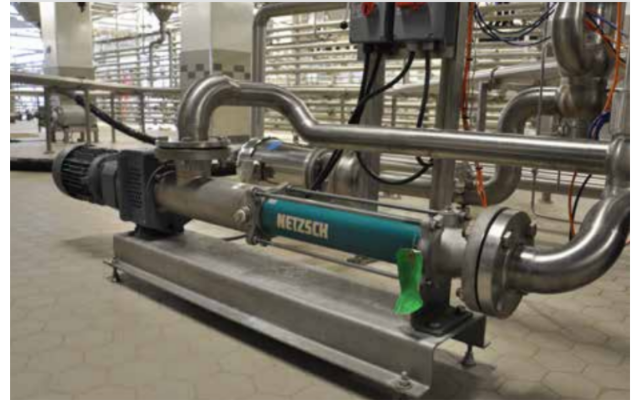
Over the course of brewing, the yeast involved in brewing can quadruple in quantity. This spent yeast is removed from the liquid through filtering, suctioning or settling. (pumps 4 & 5).
NETZSCH pumps are also used in the fermentation process when the yeast is added to the wort. Because of the gentle conveying feature of the NETZSCH Sanitary pump, it is ideal for moving the delicate, easily damaged yeast into the wort. Along with the metering capability of our pump, the precise amount of yeast is added so that the fermentation can begin.
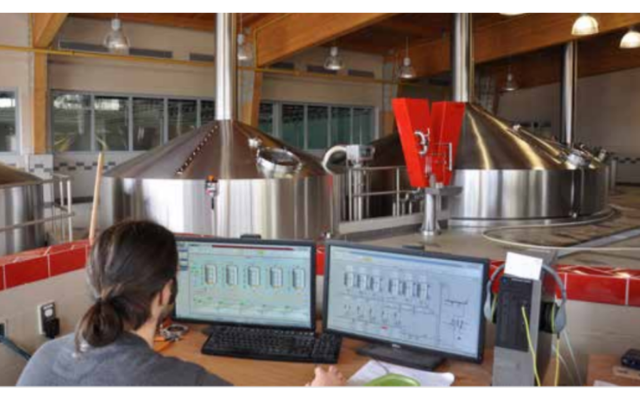
NETZSCH progressing cavity pumps have been an integral part of the Victory Brewing Company’s success in
Bavarian Brewing Education and Bavarian Pump Technology Come Together in a Pennsylvania Brewhouse
The owners of Victory Brewing both studied at the Doemens Academy in Bavaria, Germany, known worldwide for training leading brewmasters. In an interesting geographical twist, the Doemens Academy is near NETZSCH headquarters in Bavaria. So, the founders of the Victory Brewing Company have combined their Bavarian education with Bavarian-engineered pumps made in Pennsylvania for a fast-growing Pennsylvania brewery!

